Holy Ghosts
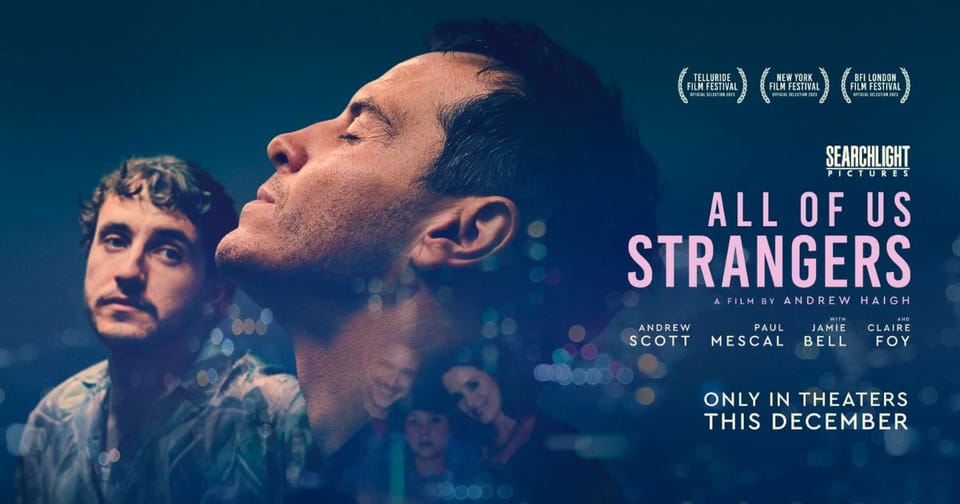
Greetings! This week's new release review is a drama from Andrew Haigh, All of Us Strangers, his first film since 2017's Lean on Pete. After seeing this and Weekend, I'm at a loss as to why the Academy has so consistently overlooked Haigh's work. Charlotte Rampling received a Best Actress nomination for 45 Years in 2016, but otherwise Haigh's movies have never received any Oscar nominations. Madness. But no matter. They stand on their own, with this being possibly his most moving work yet.
"What if?" Two words, on which hang an entire linguistic mood, the subjunctive mood, of would, of possibility. They posit an alternative, an is-not though not necessarily a never-was; mayhap a could-be. What-if scenarios can be used to shape the future, by predicting and acting toward a range of outcomes. When applied to one's past, they can be far more messy, an essentially endless catalog of the life that will never be that, if ruminated on too much, threatens to supplant the life still to come. The gnawing subjunctive is at the heart of All Of Us Strangers, Andrew Haigh's beguiling fantasia about a gay middle-aged man reunited with his long-dead parents. What if he could see them again? The answers are more complicated than first supposed, but also almost childishly simple, so simple they demand surrender of one's skepticism to a nearly religious faith in the power of love.
One night in his flat overlooking London, screenwriter Adam (Andrew Scott) is blocked on beginning his newest script, only knowing that the scene is set in the suburbs in 1987. The building's fire alarm goes off, and Adam goes out to the street. There is nobody around, though a unit on the 6th floor is illuminated, with a figure standing in the window. After returning to his apartment Adam is visited by said figure, a young man named Harry (Paul Mescal), who is apparently the only other person who lives in the building. Nursing a half-empty bottle of whiskey Harry asks with little subtlety if Adam wants some company. He declines. The next day, still blocked on his screenplay, Adam decides to take the train to his parents' old suburban home, and there finds them as he knew them when he was twelve—when they died. On later encountering Harry again, Adam invites him in. They begin a relationship as Adam continues visiting his parents, looking to fill the void left by their deaths decades before.
The basics of the plot are taken from Taichi Yamada's 1987 novel Strangers: a screenwriter in a new relationship, visiting his dead parents. But where that was a fairly straightforward ghost story—the protagonist becomes more gaunt over time as his parents feed seem to be feeding on his lifeforce—All of Us Strangers de-emphasizes external conflict and supernatural explanations in favor of Adam's many unresolved internal tensions. There are a lot of questions posed by the scenario which the movie not only doesn't answer, it doesn't even ask. In essence they all stem from one fundamental question: why doesn't Adam question something so clearly impossible?
All the answer I needed was in Andrew Scott's eyes. When the front door of his childhood home opens and he sees his mum exactly as he remembers her, they glisten in silent rapture, admitting of the impossible. He's spent his life asking questions; now he can finally stop. This could have easily tipped over into mawkish Hallmark Channel kitsch, Two People You Meet in Dorking, but for the fact that the story itself is a subjunctive falling domino. What if you and your prematurely deceased parents were together again, and you got to put all the 'what ifs' you've posed to the test? Would they accept who you have become? Would they even recognize you?
Much is made of the fact that Mum and Dad only ever knew Adam as a child. Claire Foy and Jamie Bell give some remarkable performances in this regard, playing their characters with nuance while never letting us forget they are young parents from 1985, essentially frozen in time and then thawed out in the present. Foy's Mum can't stop treating the middle-aged man in front of her like a lonely child in need of maternal care, the Oedipal undercurrents of doing so unsettling her as much as they do the audience. Dad is a more stoic, smoking-in-the-parler type, keen to dispense advice but struggling when he learns he was part of the problem. Adam for his part responds to the reunion with his parents by regressing, playing the child they remember. This incongruity gets bigger and stranger the more time he spends with them, with shades of Jim Carrey crying under a table near the end of Eternal Sunshine of the Spotless Mind, but it's not a note the movie hits too hard. It adds surreal levity to a story that is largely about reopening old wounds.
Inherent in the movie's premise of returning to Adam's youth is how unhappy that time could be even before his parents died. The 1980s were maybe the worst time in history to be a gay adolescent, menaced by societal homophobia and a terrifying mortal disease that seemed to spread if not by being gay then by doing gay. It's hard to convey that fear without directly showing its source, but as Weekend showed, one of Andrew Haigh's great talents is foregrounding the personal consequences of political and social problems. Adam may be decades removed from the worst days of the AIDS crisis and it may be that, as he assures his mother, "everything's changed" in regards to queer acceptance (including the use of the term 'queer' itself); but such foundational damage is less a healed-over scar than a dormant virus apt to flare up, an illness that never fully went away. We are all products of our upbringing, and to greater or lesser degrees we spend our lives reacting to its most painful parts: fighting them, anaesthetizing ourselves from them, wallowing in them, avoiding them, and in the process distorting ourselves in the hopes of overcoming them.
Which brings us to Harry. Paul Mescal is a perfect fit for Haigh's understated but deeply resonant direction, having brought those qualities to his performance as a troubled father in Aftersun (another movie about revisiting memories of one's parents) the previous year. He is no less troubled here, but rather than a mirage, unreachable across the years, his character is for much of the time a source of connection, a measure of progress both in Adam's emotional state and in the place of gays in the world. As with Weekend, the romantic relationship is observed with sensitivity and tenderness, the judiciously filmed love scenes cementing the bond between the two characters. Their generational difference has given them wholly different experiences of being gay, begetting different outlooks and dispositions. Harry is out to his family, and no one really cares. Yet he remains on some level outside, apart. It is this shared sense of queer difference, and Adam and Harry's mutual loneliness, that brings them together.
This existential separation becomes a greater concern the deeper into the movie we get. The movie throughout operates in a dreamy tone, with Jamie D. Ramsay's gorgeous, color-coded visual scheme—I think my favorite lighting from last year's movies—pushing the mood between cool blue loneliness, warm orange connection, and blood-tinted nostalgia. Adam's world is abstracted, the elevator in his building a mirror box of recursive reflections, the building itself an unyielding grid raking the sky. More grounded is his parents' house, filmed at Andrew Haigh's actual childhood home. About halfway through Adam's present life threatens to get subsumed by the past, and the world becomes more slippery. Causality and reality begin to break down, with the visuals and characters and even the music mutating, from needle drop to singalong, preceding some late revelations with large implications for the world of the film itself.
This is both a stylistic and narrative departure for Andrew Haigh, whose previous movies have all been stripped-down, character-driven naturalistic dramas. Haigh's characters have previously been heavily informed by their station in life: the lifeguard and artist lovers in Weekend, the comfortably retired couple of 45 Years, the young caretaker for the titular racehorse of Lean on Pete. Adam is a screenwriter, as was the corresponding semi-autobiographical character in Taichi Yamada's novel, yet aside from being isolated his social circumstances are of little immediate narrative interest. Complementing the visuals' emphasis on vibes, the narrative prizes the characters and their emotions above all else. It's hard to guess where this is going, not because it is constantly twisty but because both the location and stakes of every scene are so interior as to make plot externalities redundant.
This is especially so with the movie's divisive ending. There is no shortage of explainer videos and articles about the final scene to parse what exactly is going on, and some of them are helpful in cataloging some of the finer details that go unnoticed on a first watch. This is good information to have, though not strictly necessary. The reasons I responded so strongly to its transcendental refusal of despair, even as others have just as strongly rejected it, have less to do with how some puzzle pieces rationally fit together than the directness of the emotional appeal it has been making all along. The film's title and much of its action posits we are, yes, all of us strangers, in some way ultimately unknowable to one another. The ending says that despite the gulfs separating us—in age, relationship, death—we need not be alone, that remembering is an act of love. Appreciating the movie requires setting considerations of literalism aside; if you meet it on its own terms—if you treat Frankie Goes to Hollywood's "The Power of Love" without condescension or irony—it is achingly powerful stuff.
Folks looking for something more concrete may not care for All of Us Strangers' interiority and metaphor, but I was absorbed. I love without reservation movies that go emotionally raw like Twin Peaks: Fire Walk With Me and The End of Evangelion. I am also an admittedly easy mark for moments that involve the return of characters from the great beyond; the most sudden, shocking ugly-cry I've ever had was "Dear Billy (Mum's Letter)" from Billy Elliot: The Musical. All of Us Strangers doesn't have any single moment so potent as that, but the cumulative effect of its constituent parts—the rich colors, the elevation of 80s gay dance club standards to hymnal status, the interrogation of nostalgia, the gentleness of Adam and Harry's relationship, the childhood pain exposed like a mis-healed fracture re-broken to set aright, the willfully impossible optimism of its ending—it tied me up in knots for days. It still hasn't released me. What if it never does?
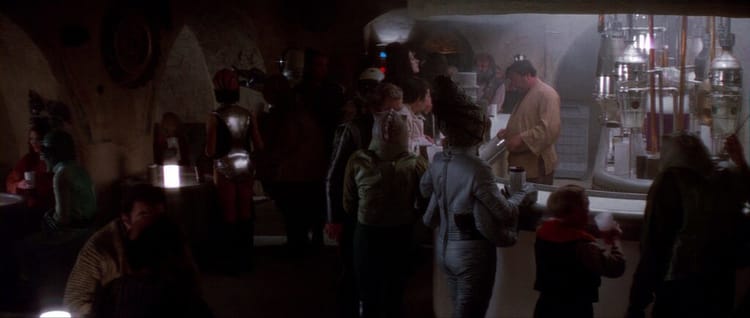
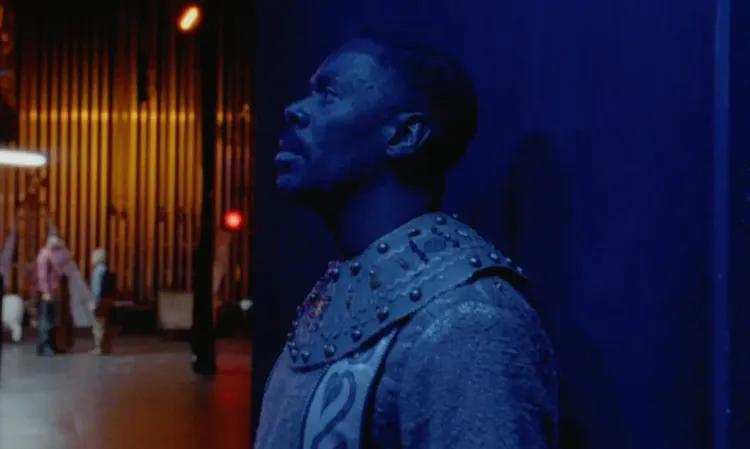
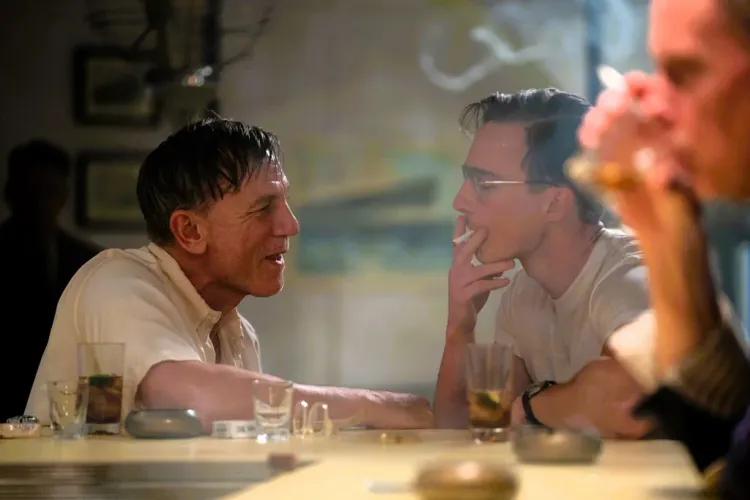
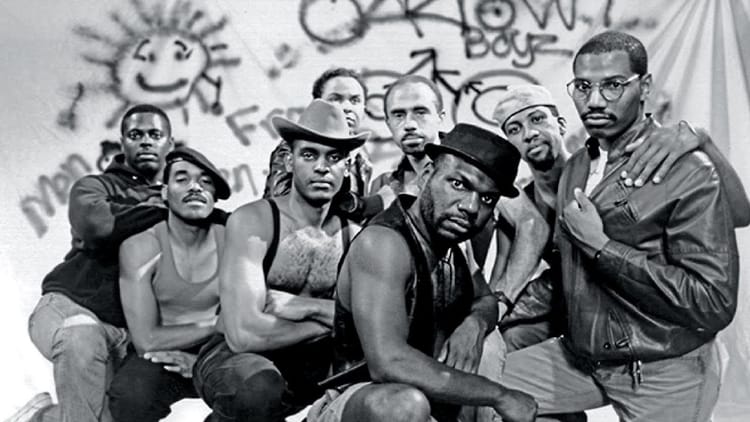
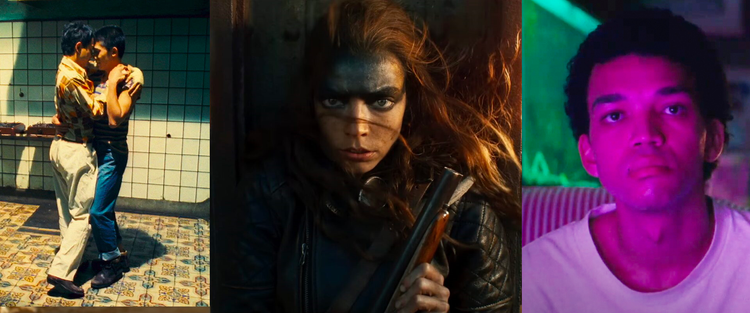
Member discussion